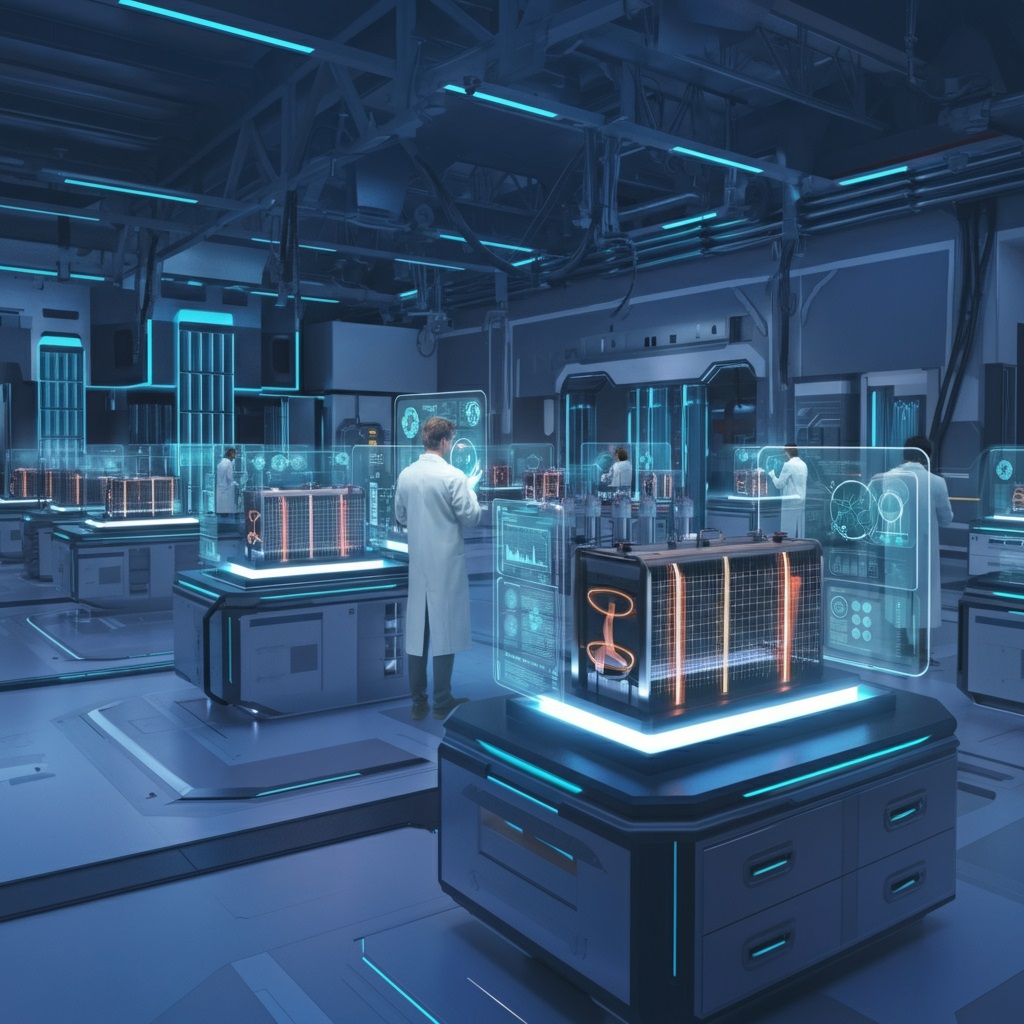Advancements in battery technology are reshaping the modern world. From powering electric vehicles (EVs) to increasing renewable energy storage, innovative batteries are enabling a more sustainable, efficient, and electrified future. The relentless push for longer-lasting, faster-charging, and more environmentally friendly batteries has led to a series of groundbreaking discoveries in recent years.
This blog dives into the latest breakthroughs in battery technology. You’ll learn about cutting-edge developments, including solid-state batteries, lithium alternatives, and innovative recycling methods, all of which stand to redefine how we store and utilize energy.
Why Batteries Are at the Forefront of Innovation
Batteries are no longer just a convenience for mobile devices; they are a foundational technology in addressing some of the world’s most pressing challenges.
- The EV revolution: Batteries are powering the shift from traditional vehicles to EVs. Without improvements in energy density and charging speeds, EV adoption would falter.
- Renewable storage: Solar panels and wind turbines generate intermittent energy. Efficient batteries are essential for storing that energy and ensuring consistent access to power.
- Sustainability efforts: Reducing reliance on fossil fuels requires robust battery solutions that produce less waste and harm to the environment.
Now, let’s explore the most exciting developments driving this revolution.
Solid-State Batteries
Solid-state batteries might be the most talked-about advancement in battery technology. Unlike traditional lithium-ion batteries, which use a liquid electrolyte, solid-state batteries utilize a solid electrolyte. This shift brings numerous benefits.
Advantages of Solid-State Batteries
- Higher Energy Density
Solid-state batteries can hold significantly more energy in the same amount of space. For industries such as EVs, this means longer driving ranges without increasing battery size.
- Safety Improvements
Traditional lithium-ion batteries are susceptible to overheating and fires due to their liquid electrolytes. Solid-state batteries vastly reduce this risk, as they are more thermally stable.
- Faster Charging
Solid-state batteries allow for rapid ion transfer, which translates to significantly faster charging times without compromising battery life.
Real-World Applications and Challenges
Major companies like Toyota, QuantumScape, and Solid Power are racing to bring solid-state batteries to market. Prototypes are already showing impressive results, but scaling production remains a challenge due to high manufacturing costs and material sourcing issues.
Lithium Alternatives
While lithium-ion batteries dominate the market, concerns about resource availability and environmental impact are driving the development of alternatives.
Sodium-Ion Batteries
Sodium-ion batteries are gaining attention due to the abundance and affordability of sodium compared to lithium. Though they currently have lower energy densities, researchers are working to close this gap. Sodium-ion batteries could become a cost-effective solution for large-scale energy storage.
Lithium-Sulfur Batteries
Lithium-sulfur batteries offer an energy density up to five times that of conventional lithium-ion batteries. However, their cycle life (the number of charge-discharge cycles they can endure) has been a limiting factor. Recent innovations, such as protective coatings and improved cathode designs, are making lithium-sulfur batteries a more practical option.
Beyond Lithium
Other alternatives, like magnesium and zinc-based batteries, are also in development. These materials are safer and more environmentally friendly, although they still lag behind lithium in terms of energy density and commercial viability.
Ultra-Fast Charging Technologies
Waiting hours for a battery to charge may soon be a thing of the past. Researchers are developing ultra-fast charging technologies that can revolutionize the usability of batteries across devices and industries.
Graphene Batteries
Graphene-enhanced batteries are pushing the boundaries of charging speeds. Known for their exceptional conductivity and heat dissipation, graphene materials can significantly reduce charging times while increasing battery lifespan.
Anode-Free Batteries
A new class of anode-free batteries eliminates the need for a separate anode, which reduces weight and increases energy density. This design also enables faster charging by improving ion flow.
Companies like StoreDot and Tesla are already experimenting with technologies that could bring charging times for EVs down to under 15 minutes.
Breakthroughs in Battery Recycling
One of the significant downsides of battery proliferation is the environmental waste it produces. However, innovations in battery recycling techniques are addressing this issue head-on.
Direct Recycling
Direct recycling retrieves usable materials, such as lithium and cobalt, from spent batteries without degrading their quality. This approach is both cost-effective and environmentally friendly.
Hydrometallurgical Methods
Hydrometallurgical recycling uses water-based solutions to recover metals from batteries. Compared to traditional methods, this process generates less waste and emits fewer harmful pollutants.
Second-Life Batteries
Used EV batteries often still have 70-80% of their capacity remaining. Repurposing these batteries for energy storage systems extends their life cycle while reducing environmental impact.
Batteries for the Future
The breakthroughs discussed above are merely the beginning. Researchers are exploring even more futuristic concepts, such as bio-inspired batteries that mimic energy storage processes found in nature and nuclear diamond batteries with ultra-long lifespans.
At the same time, advancements in AI are being leveraged to accelerate the discovery of new battery chemistries. AI models can simulate millions of potential designs, drastically reducing the time and cost associated with physical testing.
Why These Developments Matter
The progress in battery technology has implications far beyond consumer electronics. These innovations stand to redefine industries, enable renewable energy adoption, and help mitigate climate change by reducing our reliance on fossil fuels.
Every headline about the latest battery breakthrough brings us one step closer to a future powered by clean, efficient, and sustainable energy. By staying informed, we can better understand and contribute to this transformation.
Read More👉 Technologies You Didn’t Know Existed
The Bottom Line
Battery technology is rapidly evolving, with groundbreaking advancements in solid-state designs, lithium alternatives, ultra-fast charging, and recycling. These innovations promise longer-lasting, greener, and more efficient energy solutions that benefit both individuals and industries.
Interested in understanding how these technologies could impact your business or project? Stay tuned to our blog for in-depth analyses and updates on the field’s most exciting developments.

